Retrospective of Afghanistan ‘11
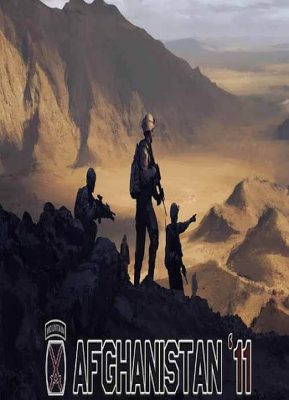 The art of coalition command … in Afghanistan … is to take the resources you are provided with, understand what the strengths and weaknesses are and to employ them to the best overall effect. – David Petraeus
The art of coalition command … in Afghanistan … is to take the resources you are provided with, understand what the strengths and weaknesses are and to employ them to the best overall effect. – David Petraeus
By Patrick S. Baker
In 2015 Vietnam ’65, developed by Johan Nagel and his company, Every Single Soldier, was published by Matrix/Slitherine on the Steam platform and Apple’s App Store. Vietnam’ 65 was an operational-level game that focused on the American and South Vietnamese counter-insurgency (COIN) campaign in the jungles of Southeast Asia. The game received critical praise and sold well.
In March, 2017, Afghanistan ’11 (A’11), published by Matrix/Slitherine, was released on Steam and the App Store. A’11 was developed by Every Single Soldier and Retro Epic and is an operational level game focused on the counter-insurgency in the mountains and valleys of Afghanistan during Operation Enduring Freedom.
A’11 is not a simple re-skinning of Vietnam ‘65, replacing jungles with mountains, the Viet Cong with the Taliban, and Hueys with Blackhawks, instead the game had been markedly improved, and expanded, with much deeper game play. This new depth included multiple historical scenarios as well as the familiar skirmish mode.
New equipment is included, such as surveillance drones, A-10 Warthogs, Mine-Resistant Ambush Protected (MRAP) vehicles, Blackhawk and Apache helicopters and Husky “mine-sweepers”. On a note, the venerable Chinook heavy-lift helicopter is still the air transport work horse in A’ 11 just as it was in Vietnam ’65.
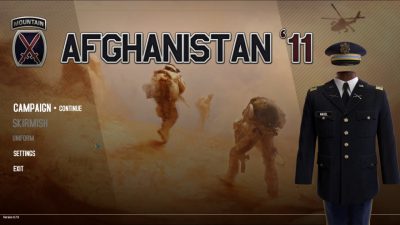
While the Coalition player still achieves victory by winning the hearts and minds of the locals, represented by the Hearts and Minds (H&M) score, there are now more ways to do that other than visiting the village and killing the enemy. New ways of earning H&M points included building civic improvement projects like water towers and roads and delivering United Nation (UN) relief supplies to the villagers.
One neat feature is that actions that help you defeat the Taliban, may also lower the local H&M score, like destroying poppy fields. Burning the poppies deprives the Taliban of income, but also makes the locals resent the Coalition as they now have no cash crop. If the overall Hearts and Minds score drops too low the Taliban will become much more aggressive, even attacking the player’s Forward Operating Bases (FOBs).
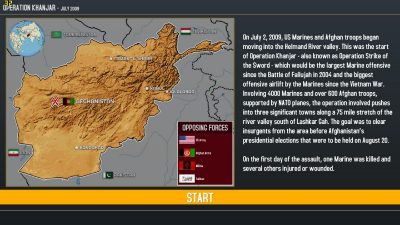
The player must also keep up their Political Support Points (PPs), the games only “currency”. PPs are earned through killing the enemy and clearing Improvised Explosive Devices (IEDs). Without sufficient PPs the player cannot accomplish much. PPs are used to do the smallest things, such as move and resupply units, build roads, etc.
In a new feature, the Coalition commander can spend PPs on helping friendly Afghani politicians get elected which changes the parameters of the game. For example, a pro-American politician’s election can help reduce Taliban influence, increase the number of PPs received for killing the enemy, etc. Where a Pro-Taliban politician’s election turns things against the Coalition.
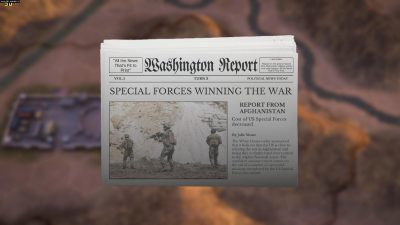 Newspapers popup at the start of random turns to inform the player of “off screen” events which affect the game. For instance, the player might get a windfall of reinforcements, or be told the airstrike cool down time is now a turn longer, or the UN is pulling out and taking their trucks with them, and many other events and effects.
Newspapers popup at the start of random turns to inform the player of “off screen” events which affect the game. For instance, the player might get a windfall of reinforcements, or be told the airstrike cool down time is now a turn longer, or the UN is pulling out and taking their trucks with them, and many other events and effects.
The player must train Afghan National Army (ANA) units, because ten turns before the hard finish, the Coalition forces withdraw and leave the ANA to fight it out with the Taliban.
In order to get and keep historical accuracy Nagel consulted with, and had the game test played by American Afghanistan war veterans, and COIN experts, such as John A. Nagl, author of Learning to Eat Soup with a Knife: Counterinsurgency Lessons from Malaya and Vietnam (2002).
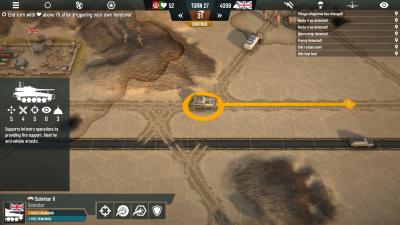 A’11 was also critically well received, just like its predecessor. One reviewer compared the game favorably to Civilization and Tropico and called it “quietly brilliant.” Another called it a “must buy.” Of course the game was not without flaws; some reviewers stated that the game lacked depth, the User Interface could be confusing and the map scrolling was very clumsy. One reviewer complained the scenarios took too long and were repetitive, while still saying it was “refreshing [and] different … from many of its peers.”
A’11 was also critically well received, just like its predecessor. One reviewer compared the game favorably to Civilization and Tropico and called it “quietly brilliant.” Another called it a “must buy.” Of course the game was not without flaws; some reviewers stated that the game lacked depth, the User Interface could be confusing and the map scrolling was very clumsy. One reviewer complained the scenarios took too long and were repetitive, while still saying it was “refreshing [and] different … from many of its peers.”
In September 2018, A’11 added a Down Loadable Content (DLC) module which has the British Royal Marines instead of the US Army battling the insurgents. Royal Marines is not a simple reskin. Rather, British vehicles and equipment have different strengths and weaknesses than their American counterparts.
Also, the Royal Marines DLC adds civilian vehicles, road blocks and car bombs, also called Vehicle-Borne Improvised Explosive Devices (VBIEDs). Further, the Marines’ mission focus is somewhat less on nation-building and more on clearing and holding specific territories against the Taliban and militias.
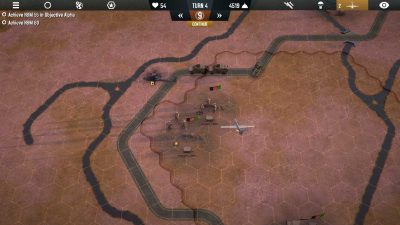 In December 2018 Apple decided to remove A ’11 from their App Store. In an email sent to Slitherine, Apple said it was removing the game for depicting: “a specific government or other real entity as the enemies.”
In December 2018 Apple decided to remove A ’11 from their App Store. In an email sent to Slitherine, Apple said it was removing the game for depicting: “a specific government or other real entity as the enemies.”
Paulo Paglianti, Slitherine’s global public relations manager, responded publicly with: “Historical rigor is a fundamental key of Slitherine and Matrix Games…”
Further, he stated that Slitherine and Matrix “never portrayed an ‘enemy’ for its [ethnic] origin. Our [games] are based on history and … try and depict realistic historical situations.”
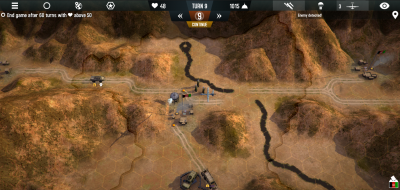
Apple’s decision was called “incongruous” because, as Paglianti stated: “Afghanistan ’11 is probably the only war game ever produced where killing the enemy is not the main focus of the game.” Also, games that presented a “specific government” (sic) and a “real entity” (sic), like the Germans, Japanese, British and Native Americans, etc., as “the enemies” were also were still sold from the App Store. Despite Apple’s attempt at “censorship”, A’ 11 has sold some 25,000 units to date.
Nagel, a South African veteran of the Angolan Bush War, is now working on the third game in his unofficial “COIN Series”: Angola ’86. Angola ‘86 will be “the first strategy game to capture the essence of the entire South African Border war, from Omugulugwombashe to UNTAG (Aug’66 – Mar’90)”. An early release version of the game is available on Steam.
Patrick S. Baker is a former US Army Field Artillery officer and retired Department of Defense employee. He has degrees in History, Political Science, and Education. He has been writing history, game reviews, and science-fiction professionally since 2013. Some of his other work can be found at Sirius Science Fiction, Sci-Phi Journal, Armchair General, and Historynet.com.
Sources
Gameskinny.com (March, 2017) Afghanistan ’11 – A Different Take on Strategic War Games
Modern Warfare Magazine (Jan-Feb, 2018) “Media Review; Afghanistan ‘11”
Polygon.com (Dec. 2018) Afghanistan ’11, featuring US and Taliban forces, removed from App Store
Quartertothree.com (March, 2017) Qt3 Games Podcast: Johan Nagel and Afghanistan ’11
______ (April, 2017) In Afghanistan ’11, history and game design go up to 11
Rockspapershotgun.com (March, 2017) Wot I Think: Afghanistan 11
Saveorquit.com REVIEW: Afghanistan ’11: Royal Marines
Steampowered.com Afghanistan ’11
______ Angola ‘86
Wargamer.com Review: Afghanistan ’11
Vice.com (April, 2017) Afghanistan ’11’ and the Forever Wargame
